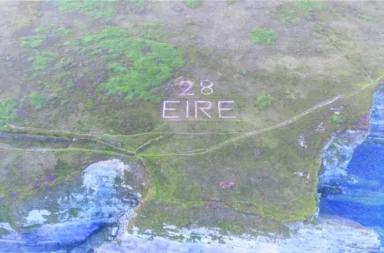Many parents wonder whether it is better to donate or sell a property to a child, but the real question is whether it is cheaper to sell or donate. Several aspects have to be analysed, such as the price of the house, the taxes to be paid or the location of the property. In other words, to find out whether it is better to donate a house to your children or to sell it to them, you have to do a lot of maths.
How much you have to pay for a gift from parents to children:
– Parents
They must pay the corresponding capital gain in the Income Tax (IRPF), as if it were a purchase and sale. This is because donations are taxed in the income tax return. And it is the donor (the parents), not the one who receives the donation (the children), who must pay the tax.
As far as personal income tax is concerned, if the difference between the acquisition value of the property and the actual value at the time of the donation results in a gain, this gain will be taxed in the donor’s personal income tax at the rate of 19%-26%, depending on the amount of the gain obtained.
With effect from 1 January 2021, these are the new rates for capital gains:
The first 6,000 euros of gain, at 19%.
The following 44,000 euros (up to 50,000 euros), at 21%.
The next 150,000 euros (up to 200,000 euros), at 23%.
The rest of the gain (from 200,000 euros), at 26%.
But if a loss is generated (because the current real value of the flat is lower than the acquisition value), then this loss cannot be included in the IRPF. This is, however, a controversial issue, according to José María Salcedo, partner at Ático Jurídico. The TEAR of Valencia has declared that capital losses derived from the donation of real estate can be included in the IRPF. Therefore, the inclusion of these losses in the tax return can be discussed.
– Children
They receive the donation and must pay Inheritance and Gift Tax (ISD). The amount depends on factors such as the value of the property or the autonomous community where it is located. In most regions there are tax reliefs: 99%, 75%… but in others, there are none. Here you can see the tax benefits in each Autonomous Community for the donation of money for the purchase of a primary residence.
The child is also liable to pay the municipal capital gains tax, a tax that depends on each local council.
What happens if a monetary donation is made
The father who gives money to his son for the purchase of his habitual residence should be aware that the son will have to pay the Donations Tax, which has important tax advantages depending on the Autonomous Community where the donee resides (where he has spent more days in the last five years prior to the donation). Here you can see the tax benefits available in each Autonomous Region for the donation of money for the purchase of a primary residence.
But to enjoy the tax benefits of the Donations Tax it is necessary to fulfil a series of requirements, established by each Autonomous Community. One of them is usually that the donation is formalised in a public deed. José María Salcedo, partner at Ático Jurídico, reminds us that it is necessary to first check what tax benefits exist in the Autonomous Community and the requirements that must be met in order to enjoy them.
In the case of lending money for the purchase of a home, then it must be made clear that it must be formalised in writing. The loan is subject to Transfer Tax (Impuesto de Transmisiones Patrimoniales, ITP), although it is exempt. To do this, you must present the self-assessment of the tax (form 600) where the exemption must be stated.
Can a living donation be challenged?
A donation is the giving of property or the provision of a professional service without receiving any consideration in return. This includes wedding gifts, money given by parents to their children to buy a house, or the gift of a house.
The tax authorities also consider it a donation to sell something below its real market value.
Furthermore, there is no minimum for donations, i.e. you have to pay for any gift, no matter how small. That said, it can happen that after donating goods, there may be reasons why you want or intend to revoke this donation. This can be done, but only in certain cases provided for by law:
Revocation of the donation due to the birth of children: it can be revoked if the donor has children after the donation, even if they are posthumous, or if the donor’s child is alive, whom the donor believed to be dead when he made the donation.
Revocation due to non-fulfilment of conditions: conditions that have been imposed by the donor and that, if the donee does not fulfil, the donation may be revoked.
Revocation of the donation due to ingratitude of the donee: this is the most important cause of revocation and there are three causes of ingratitude: 1) that the donee commits a crime against the person, honour or property of the donor. 2) If the donee accuses the donor of any of the crimes that give rise to ex officio proceedings or public accusation, even if he proves it. (3) The donee improperly withholds maintenance.
Taxes to be paid in case of purchase and sale
Parents
They are similar to those in the case of donations: they must pay the IRPF but, in this case, they must assume the Plusvalia municipal.
Children
Those who buy the property, as in any sale and purchase transaction, must pay the Transfer Tax (ITP), a tax that also varies from one region to another. From 6% in the Community of Madrid, 7% in Aragón, 8% in Castilla-La Mancha and 10% in Extremadura. However, some regions apply a sliding scale of rates depending on the value of the property.
There are also tax benefits (reduced rates) if the property is purchased as the main residence, or if the purchaser is a large family.
Dangers of buying and selling
In the case of a sale and purchase, there must be an economic transfer to the parents. Either because the child has the amount saved, or because he/she takes out a mortgage – with the expenses that this entails – or because the parents make a private loan to the child or children. Otherwise, according to José María Mollinedo, secretary general of the tax authorities, Gestha, the tax authorities could suspect that a purchase or sale is being simulated in the form of a donation.
«The Treasury may understand that a public document has been falsified and consider that there has been an unjustified capital gain on the part of the person receiving the property. For a property worth 200,000 euros located in Madrid, we could be talking about a financial penalty of just over 161,000 euros if the Tax Agency considers that a donation has been simulated,» explains Mollinedo.
What is the tax base?
A house cannot be donated ‘for free’ or ‘for two euros’. At least it cannot be done without receiving a significant ‘stick’ from the tax authorities. In the same way, you cannot sell a property for these fictitious amounts or for a price that the tax authorities later consider «abnormally low».
Every home has a minimum value for tax purposes. A value that each autonomous community calculates based on certain parameters. In some cases, the cadastral value of the property is taken as a reference, but each community has its own calculation methods.


